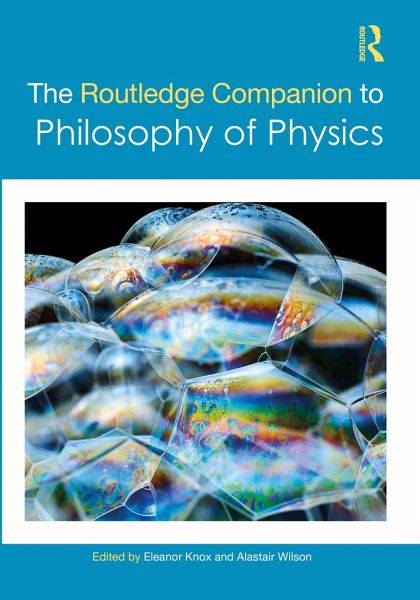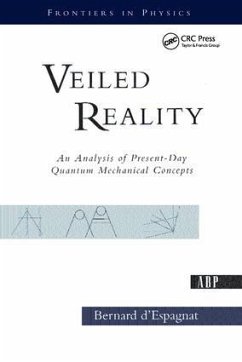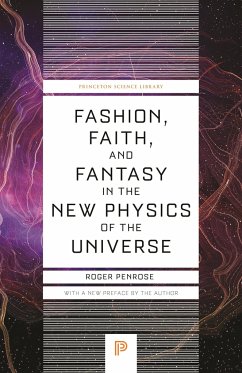
The Routledge Companion to Philosophy of Physics
Versandkostenfrei!
Versandfertig in 6-10 Tagen
230,99 €
inkl. MwSt.
Weitere Ausgaben:

PAYBACK Punkte
115 °P sammeln!
The Routledge Companion to Philosophy of Physics is a comprehensive and authoritative guide to the state of the art in the philosophy of physics. It comprisess 54 self-contained chapters written by leading philosophers of physics at both senior and junior levels, making it the most thorough and detailed volume of its type on the market - nearly every major perspective in the field is represented.The Companion's 54 chapters are organized into 12 parts. The first seven parts cover all of the major physical theories investigated by philosophers of physics today, and the last five explore key them...
The Routledge Companion to Philosophy of Physics is a comprehensive and authoritative guide to the state of the art in the philosophy of physics. It comprisess 54 self-contained chapters written by leading philosophers of physics at both senior and junior levels, making it the most thorough and detailed volume of its type on the market - nearly every major perspective in the field is represented.
The Companion's 54 chapters are organized into 12 parts. The first seven parts cover all of the major physical theories investigated by philosophers of physics today, and the last five explore key themes that unite the study of these theories.
I. Newtonian Mechanics
II. Special Relativity
III. General Relativity
IV. Non-Relativistic Quantum Theory
V. Quantum Field Theory
VI. Quantum Gravity
VII. Statistical Mechanics and Thermodynamics
VIII. Explanation
IX. Intertheoretic Relations
X. Symmetries
XI. Metaphysics
XII. Cosmology
The difficulty level of the chapters has been carefully pitched so as to offer both accessible summaries for those new to philosophy of physics and standard reference points for active researchers on the front lines. An introductory chapter by the editors maps out the field, and each part also begins with a short summary that places the individual chapters in context. The volume will be indispensable to any serious student or scholar of philosophy of physics.
The Companion's 54 chapters are organized into 12 parts. The first seven parts cover all of the major physical theories investigated by philosophers of physics today, and the last five explore key themes that unite the study of these theories.
I. Newtonian Mechanics
II. Special Relativity
III. General Relativity
IV. Non-Relativistic Quantum Theory
V. Quantum Field Theory
VI. Quantum Gravity
VII. Statistical Mechanics and Thermodynamics
VIII. Explanation
IX. Intertheoretic Relations
X. Symmetries
XI. Metaphysics
XII. Cosmology
The difficulty level of the chapters has been carefully pitched so as to offer both accessible summaries for those new to philosophy of physics and standard reference points for active researchers on the front lines. An introductory chapter by the editors maps out the field, and each part also begins with a short summary that places the individual chapters in context. The volume will be indispensable to any serious student or scholar of philosophy of physics.













